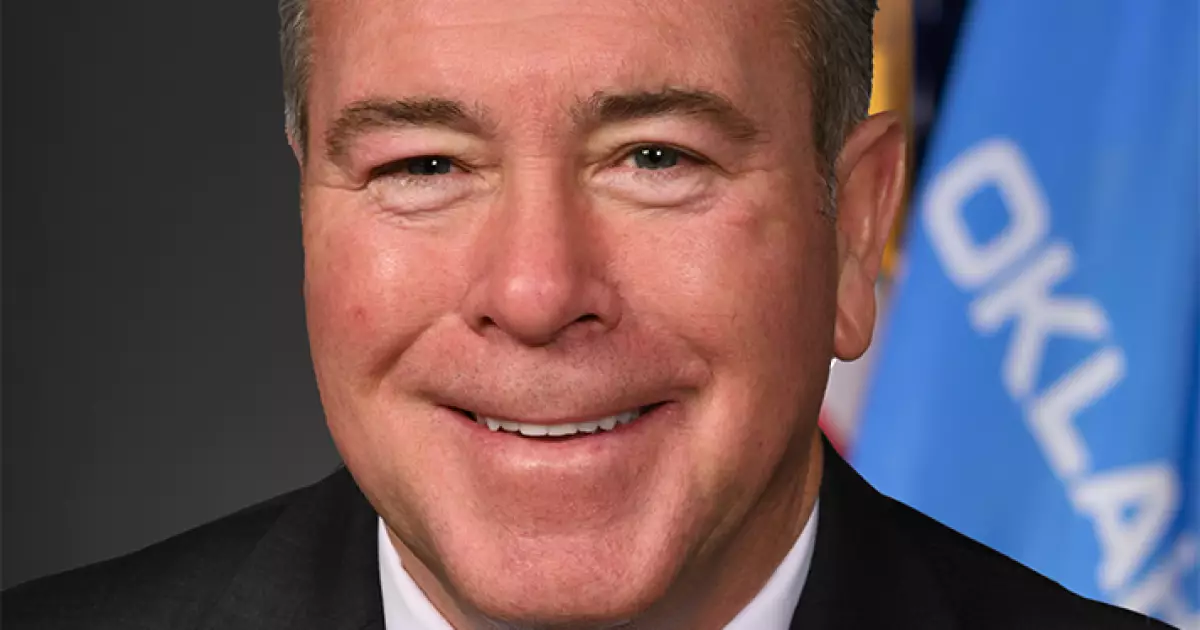5 Reasons Oklahoma’s Internal Power Struggle is Poisoning Governance

The landscape of Oklahoma governance is reaching a boiling point as the rivalry between State Treasurer Todd Russ and Attorney General Gentner Drummond escalates. This clash, which centers around the management of the state’s financial resources and the complex intersection of politics and environmental guidelines, is symptomatic of broader issues within conservative governance. The implications of their feud extend beyond mere debating over legal responsibilities; they echo a deeper conflict over ideological values that are at play in a state grappling with its fiscal future and the burgeoning cultural wars.
A Battle for Leadership and Authority
The recent accusations from Treasurer Russ against Attorney General Drummond highlight the dangerous currents underlying their public clash. Labeling Drummond’s actions as attempts to “centralize power,” Russ frames the Attorney General’s maneuvers as unconstitutional, illustrating a constitutional crisis waged on the battleground of fiscal governance. In an era where institutional integrity is paramount, the strife over who controls Oklahoma’s coffers should be a serious concern for citizens who value transparency and accountability.
Drummond, eyeing the gubernatorial seat, is simultaneously walking a tightrope between fulfilling his duties and attempting to exert dominance over state financial processes. The fact that he feels compelled to assert the authority to alter the Oklahoma Tobacco Settlement Endowment Trust’s investment documentation—even at the cost of institutional scrutiny—sends an unsettling message about the priorities of those in power. The underlying question remains: is compliance with a deeply rooted local governance infringing on personal agendas?
Environmental Policies and Economic Realities
At the core of this dispute is the contentious Oklahoma Energy Discrimination Elimination Act of 2022, designed to sever financial ties with firms perceived to be maligning the fossil fuel industry. While it is easy for both parties to frame their arguments in light of environmental stewardship, the reality is significantly murkier. Russ’s claim that Drummond initially sidestepped defending this act raises serious questions about the Attorney General’s commitment to supporting local industries against perceived leftist ideologies.
The law itself, which has galvanized reactions from various sectors, including significant players like BlackRock, reveals an unsettling trend. Instead of creating an environment where the state can capitalize on diverse investment opportunities, legislators are crafting legislation that feels decidedly retaliatory. Is Oklahoma really taking strides towards economic independence or simply indulging in a self-sabotaging vendetta against progressive finance sectors?
The Role of the GOP in Power Dynamics
Amid these tensions, the role of the Republican Party cannot be overlooked. A once-unified party has become increasingly fragmented, with factions squabbling over issues like environmental governance and corporate relationships. In claiming that Drummond has a too-cozy relationship with investment firms, Russ inadvertently exposes the underbelly of party politics. This internal strife raises an unsettling question: are Republican leaders prioritizing their political ambitions over the long-term prosperity of Oklahoma?
The relationship that Drummond purportedly had with BlackRock, as outlined by his spokesman, contrasts sharply with the narrative Russ attempts to construct. This discrepancy not only muddies the waters but serves to underline the fractures within the Republican Party that have been seeping into the fabric of state governance.
Legal Maneuvering and Institutional Integrity
Drummond’s initiatives, including his appeal to the Oklahoma Supreme Court regarding the constitutionality of the aforementioned Act, draw attention to the pivotal role of the judicial system in state governance. However, these maneuvers beg a larger question: is litigation being utilized as a means of power consolidation rather than pursuing justice or fair economic treatment? The ongoing legal battles divert much-needed focus from pressing state issues, creating an atmosphere steeped in animosity rather than collaboration.
Russ’s criticism of Drummond’s legal strategies indicates a pressing need for a reevaluation of priorities. The focus should ideally center around fiscal stewardship rather than individual political aspirations and antagonisms. When state governance prioritizes personal ambition over collaborative frameworks, citizens inevitably suffer the consequences as their representatives overspend time warring rather than working.
This internal feud is indicative of something far more troubling: the erosion of accountability in governance and the trend towards politics overshadowing public service. Oklahoma’s leaders must refocus their efforts on constitutionality, integrity, and the sustainable governance of its resources rather than petty rivalries steeped in personal ambition.





